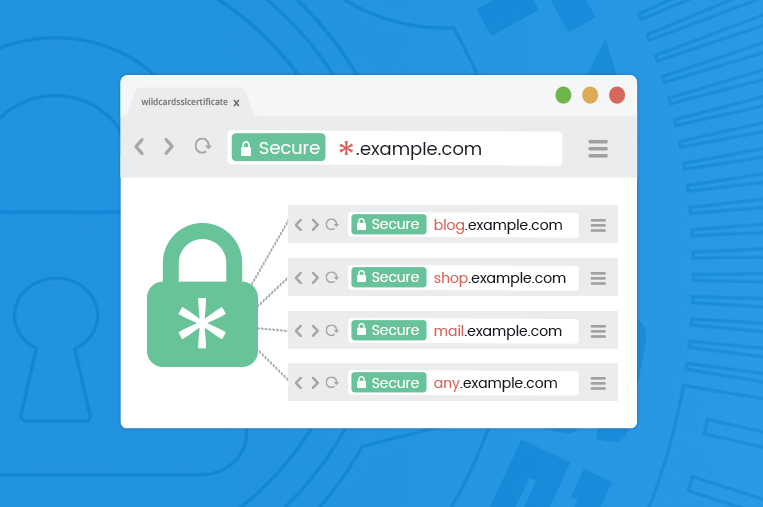As far as digital certificates go, SSL certificates are pretty powerful. By installing one on your website, you ensure that users connect to it on their browsers through the HTTPS protocol. This creates an encrypted connection between your website and the visitor?s browser. Information sent over an encrypted connection cannot be intercepted by a third party. So, by having an SSL on your site, you?re keeping user data safe.
There are so many kinds of SSL certificates available though, so it can be tricky to know which is right fone for your website. In this article, we?ll be discussing the best kind of SSL certificate for a website with multiple subdomains.

First, we?ll zero in on why having an SSL isn?t just a good thing – it?s a necessity.?
Why you need an SSL
Skeptical about the benefits of SSL certificates? This section is for you. If you have a website, you need an SSL. Period. Gone are the days when SSLs were recommended for only e-commerce sites or other sites that requested personal information. Beyond protecting your users, ever since Google?s campaign for HTTPS everywhere in 2014, SSL adoption has become more widespread across the web. Web browsers flag sites without SSL certificates as ?not secure? and it?s even become a Google ranking factor. These days, a site without SSL will get left behind.
Now that we?ve convinced you, let?s talk about the benefits of Wildcard SSLs.
What is a Wildcard SSL?
A Wildcard SSL will protect one domain and any subdomains of one level linked to it. For example, if your website (example.com) has a login page and a shop page, installing an wildcard SSL on your site ensures that login.example.com and shop.example.com will also be protected.
A wildcard SSL will save you from having to secure each subdomain individually, which would likely get pricey and hard to manage. Another great thing is that you don?t have to specify the subdomains when you activate and install your SSL. Not only does this mean any existing subdomains are automatically protected by a Wildcard SSL, but any subsequent subdomains you create will also be protected.
This means that if you plan on expanding the scope of your site in the future (by adding a forum, blog, or email service, for instance) you won?t have to worry about reissuing your SSL or getting completely new SSLs. A Wildcard SSL will have you covered.
Conclusion
Whatever kind of website you have, an SSL certificate is a necessity. For single domains with multiple subdomains, a Wildcard SSL certificate is a no-brainer.
